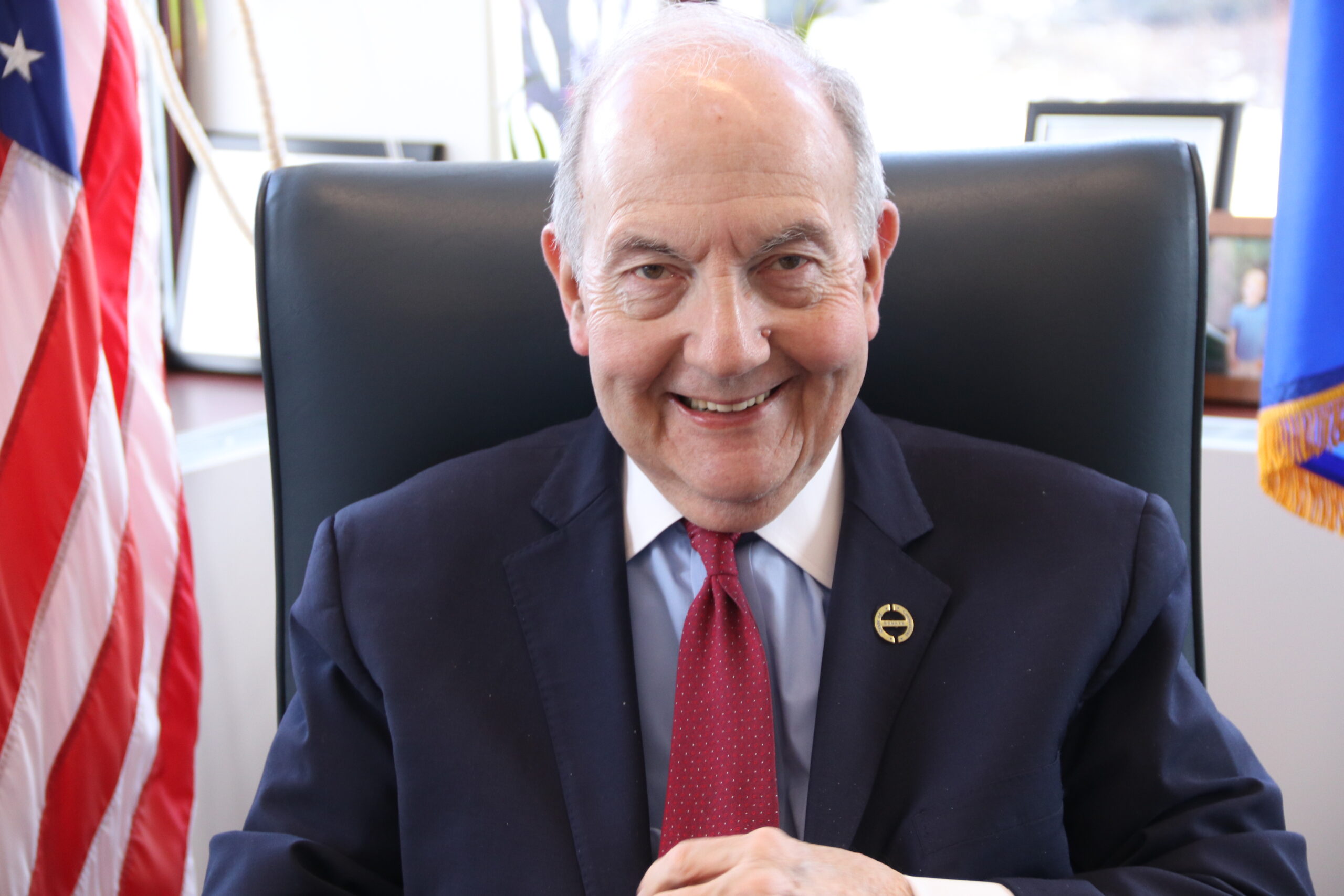Sens. Looney & Fasano Urge Attorney General Tong to Appeal Tweed Ruling
HARTFORD – Today, Senate President Pro Tempore Martin M. Looney (D-New Haven) and Senate Republican Leader Len Fasano (R-North Haven) wrote to Attorney General William Tong urging him to appeal the ruling by the U.S. Court of Appeals for the Second Circuit in Tweed-New Haven Airport Authority v. Tong to the U.S. Supreme Court.
Below is the full text of their letter. A copy of the letter is attached.
Dear Attorney General Tong:
We are writing to urge you to appeal the ruling by the U.S. Court of Appeals for the Second Circuit in Tweed-New Haven Airport Authority v. Tong to the U.S. Supreme Court.
As the Connecticut Attorney General, you are the chief legal officer of the state tasked with representing the interests of the state in all legal matters, protecting the public interest and defending our laws when the constitutionality is challenged in litigation.
In 2009, an agreement was reached between Tweed-New Haven Airport Authority, the City of New Haven and the Town of East Haven. In exchange for allowing more of the airport’s runway safety areas to be paved and therefore accommodate more flights, the parties also agreed to a permanent moratorium on future expansion attempts. This provision was contained in a contract entered into by all parties, and enshrined in state law under Conn. Gen. Stat. § 15-120j(c). As a result, there was substantial consideration paid by the parties, as recited in the contract which passed by the General Assembly and was incorporated into state statue. It is the contract, in combination with the statute, which gives rise to a claim that the City of New Haven essentially waived any defenses to a claim of federal preemption or in the alternative are estopped from making such an argument after accepting all of the benefits of the negotiated deal.
In recent years we have seen attempts by some of the same parties that agreed to the deal to now renege on those agreements. There has been blatant disregard and multiple attempts to circumvent the state law passed in 2009 and the contract signed by all parties.
Further, whereas the Second Circuit held a political subdivision has standing to sue a state for a violation of the Constitution, the matter is not fully settled. The general rule is that town, city and other subdivision “created by a state for the better ordering of government, has no privileges or immunities under the Federal Constitution which it may invoke in opposition to the will of its creator.”1 The Second Circuit has joined the Fifth and Sixth Circuits to carve out an exception for claims brought by subdivisions under the Supremacy Clause. However, the Ninth Circuit has refused to make such an exception, and when a city argued a state statute restricting airport expansion was superseded by federal law, the court threw out the case and held the city did not have standing.2 In light of the split among circuit courts, the recent decision provides our nation’s highest court an opportunity to review the issue of standing.
Lastly, even if the town and Airport Authority have standing, we have serious concerns with the conclusion that a state statute regulating the length of runways is always superseded by the Federal Aviation Administration Act. States have extensive authority to adopt laws that promote public safety and regulate property interest. Conn. Gen. Stat. § 15-120j(c) limits the length of Runway 2-20, and does so as a legitimate means to address traffic, air quality, public safety of the neighborhood, and general environmental and community interests that will arise from larger aircraft and an exponential increase in commercial activity at the airport. When the General Assembly passed the statute, it was not attempting to regulate air safety, which can be reserved for federal control. Rather, it was exercising its authority grounded in police power, and the 10th Amendment, to control a local issue. Are we to believe that once an airport is approved by the Federal Aviation Authority to provide commercial services that it is immune from any zoning or property law? The Second Circuit’s decision will provide a serious and potentially unlimited abdication of authority from the states to the federal government for every licensed airport, and setting such a precedent is worth our concern.
For the above reasons, we ask that you file a petition for a writ of certiorari with the U.S. Supreme Court so that these issues can be properly reviewed. Allowing the Second Circuit ruling to go unchallenged sets a dangerous precedent that the Attorney General of the State of Connecticut will not always vigorously defend Connecticut law when challenged by those whose goal is to restrict the ability of a state to protect its citizens using its police powers to enhance public safety.
Sincerely,
Martin M. Looney
Senate President Pro Tempore
Len Fasano
Senate Minority Leader
